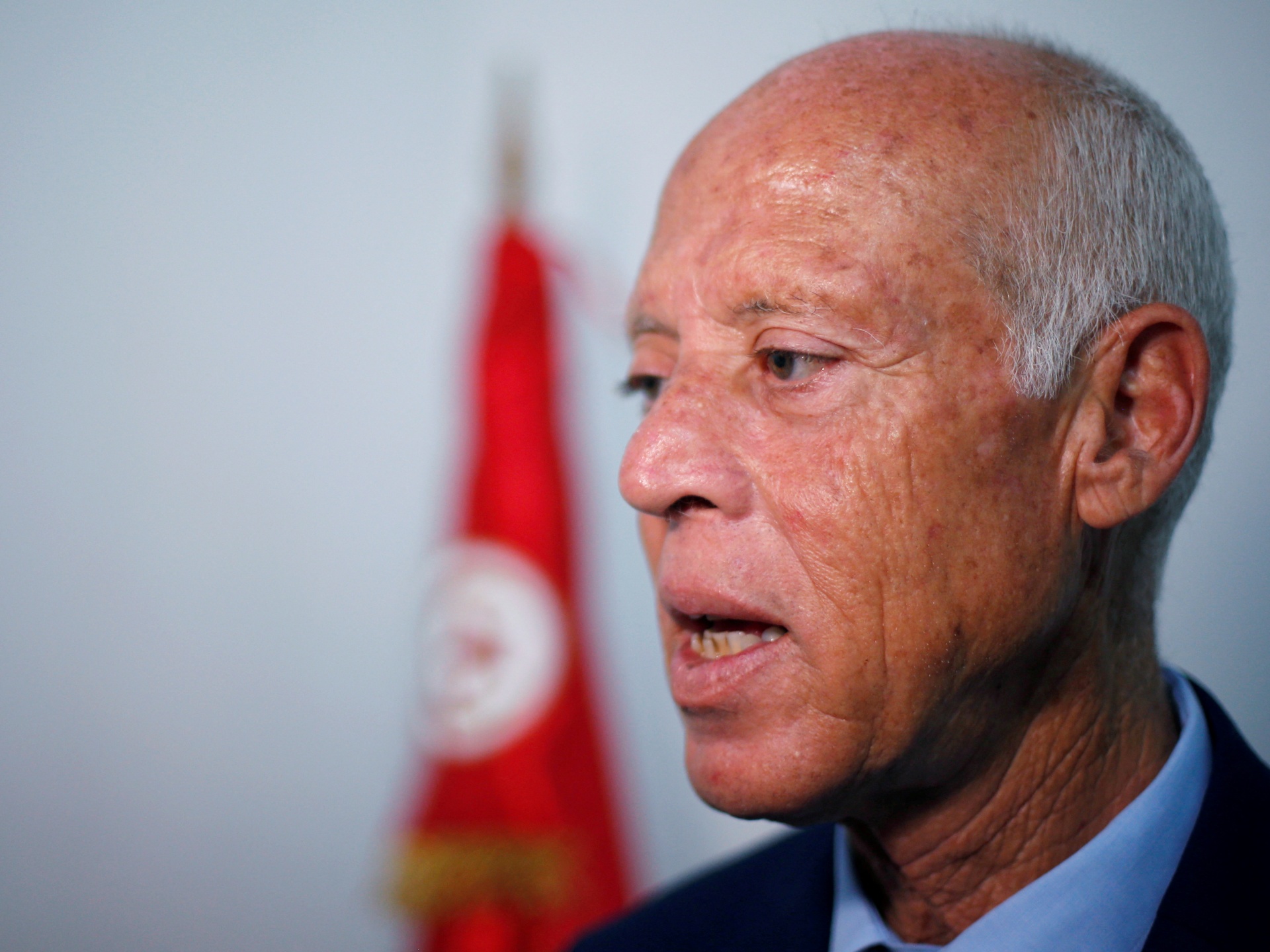Meanwhile, the Tunisian government and main labour union sign a deal to boost wages in an attempt to ease social tensions.
Tunisia’s president issued an electoral law reducing but not ending the role of political parties in a reformed parliament that will have fewer powers under a constitution passed in July.
Under the new law, voters will choose candidates in the December 17 election individually rather than by selecting a single party list – a switch that will weaken the influence of parties.
The unilateral changes are the latest that President Kais Saied has made to Tunisia’s political system since he seized most powers in July 2021 in a move his foes called an anti-democratic coup to establish one-man rule.
“We are passing through a new stage in the history of Tunisia towards the sovereignty of the people after previous sham elections,” said Saied during a cabinet meeting on Thursday.
He said political parties were not being excluded and such accusations constituted “lies and fabrications”.
The main parties across Tunisia’s political spectrum have already rejected the law, saying they will boycott any elections under Saied’s new constitution, which has greatly expanded his powers and removed most checks on his actions.
Ahmed Nejib Chebbi, head of the National Salvation Front, a body representing the main parties in Tunisia’s opposition, including Ennahdha, said last week the elections will be “held under the supervision of a body that is not neutral and is loyal to the ruling authority”.
He added the boycott was a response to an electoral law written “by Saied alone”, which was part of a “coup against constitutional legitimacy”.
The constitution was passed overwhelmingly in a referendum in which official figures showed only 30 percent of voters took part – though opposition parties accused the authorities of inflating even that low rate of participation.
The previous democratic constitution from 2014 enshrined a major role for parliament, giving it the main responsibility of forming governments, while the president had less direct power.
Saied’s new constitution has instead brought the government directly under the president, while reducing the influence of a new two-chamber parliament.
The new lower chamber will only have 161 members, compared with the 217 previously. Details of the second chamber, including how its members will be elected, have not yet been issued.
Saied, a political independent who worked as a constitutional law lecturer before running for president in 2019, has rejected international criticism, calling it unacceptable interference in domestic Tunisian affairs.
He has denied his actions constitute a coup or that he will become a dictator.
Wage deal
Also on Thursday, Tunisia’s government and main labour union signed a deal to boost wages, a step that may ease social tensions, but they did not announce any further agreement on reforms needed for an IMF bailout.
The increase in state salaries of 5 percent a year for three years, and a 7 percent rise in the national minimum wage, were higher than figures announced on Wednesday.
The IMF and major foreign donors want Tunisia to push ahead with cuts in subsidies and the restructuring of state-owned companies, as well as steps to bring the public sector wage bill under control.
The fund has signalled it will not move forward with a bailout sought by Tunisia unless the government brings on board the Tunisian General Labour Union (UGTT), which says it has more than a million members and has previously shut down the economy in strikes.
“We announce the move forward in adopting a participatory approach in the national reform programme to bring Tunisia to safety,” said Prime Minister Najla Bouden, adding the wage increase would help achieve social peace.
